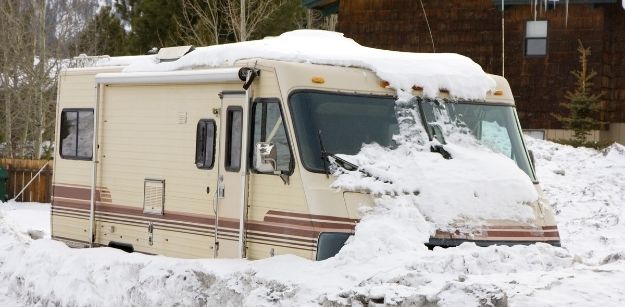Do you live in an area where it gets below 32 degrees Fahrenheit during the winter? Or somewhere that it’s usually below 32 degrees Fahrenheit even on regular days, and often unexpectedly? If you have an RV, you should consider winterizing your RV. Not winterizing your RV may lead to damages. Your RV then becomes useful or may cost you so much money for repairs. Indeed, you don’t want that.


Water freezes when the temperature reaches a lower level than 32 degrees Fahrenheit. Water or moisture can get into your pipes or around them. When they freeze and expand, they’ll cause damage to your tanks, fittings, and pipes. Tanks, lines, and fitting may crack or break. Freezing water could entirely damage the plumbing system of your RV. Draining the water every time is not enough. There are areas in your RV or RV’s engine where you may not notice the water is pooling. “Prevention is better than cure” as they always say. You can avoid these problems and prevent future issues by winterizing your RV.
Winterizing your RV
Here are more issues aside from freezing water damaging your pipes, fittings, and tanks that you can prevent when you winterize your RV:
Moulds caused by moisture
Moisture can cause moulds and mildew. To prevent any water, seal your RV. Sealing can prevent any leaks that may let moisture in. It is crucial to avoid moulds since it can be very unhealthy and risky to live in an RV with moulds. They may cause various kinds of illnesses. Most people think a tarp is enough to cover their RV for the winter, but it’s not. It can only protect you from the snow and such, but not from the moisture that can condensate through it. What you can do is to apply moisture absorbent products in your RV. These types of devices will suck up water that might have gotten in your RV.
Freezing Water Lines
Freezing water lines are one of the most challenging issues to repair. It’s the biggest problem that you may encounter when you don’t winterize your RV. When winter starts or the temperature hits below 32 degrees Fahrenheit, frozen water or moisture will fill your lines. The preventative solution to this is to apply antifreeze to your pipes.
Insects
When winter comes, more pesky rodents also find places to sneak into and stay at. A part of winterizing your RV is cleaning it all out, from the fridge, cabinets, and to your pantries. Instead of waiting for a surprise attack or hearing something running around your RV, clean and throw out any food you can find in your RV. Always make sure the windows are shut, or any opening is covered for.
Although you can winterize your RV yourself, it would be best to let a pro do it. An expert may be able to notice issues you may not be able to recognize and address. With the experience and expertise that they have, technicians will better prepare your RV for the winter. Moreover, you might commit specific errors that pros would know and be careful not to commit. Not correctly winterizing your RV will still cost you repairs in the future. Call a pro and let them inspect and winterize your RV.



